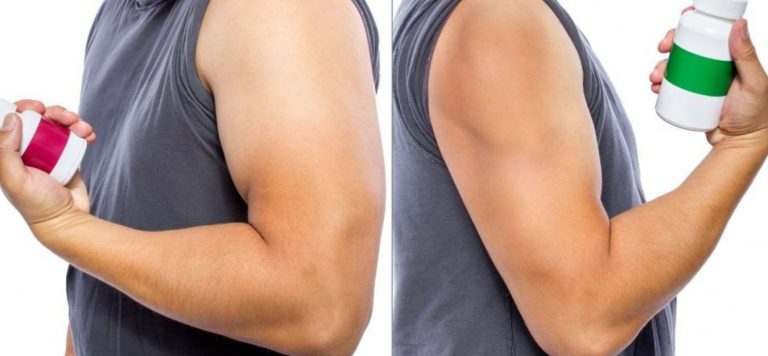Treating Your Blood Pressure Before Risks Arise
High blood pressure, or hypertension, is found in roughly 30% of the global population. Fortunately, this condition is also one of the most modifiable risk factors for heart disease. You can do many things to support low blood pressure, from diet to exercise, but sometimes we need a little extra help to treat blood pressure. Below we’ll outline what high blood pressure is and the best natural supplements for high blood pressure, including vitamins, minerals and herbal supplements.
What is High Blood Pressure?
Blood pressure is determined by measuring the pressure that the blood exerts against the walls of your arteries. Arteries are part of the circulatory system that carries fresh oxygenated blood from the heart throughout the body. Doctors and other healthcare practitioners determine blood pressure by measuring two numbers. These are systolic, measured during a heartbeat, and diastolic, measured while the heart rests between each beat.
A measurement that is higher than 120 systolic and 80 diastolic (120/80) is considered high. It’s normal for blood pressure to rise and fall throughout the day, but if someone consistently measures above this threshold, their doctor may diagnose them with high blood pressure.
6 Natural Remedies for Managing High Blood Pressure
When it comes to managing your blood pressure, many supplements may help, including herbal supplements such as garlic; vitamins like C and D; and important minerals, including magnesium and potassium.
However, taking all of these supplements at once is not recommended. Always consult with your doctor or another qualified healthcare practitioner before taking any supplements to avoid any possible negative interactions with medications or health conditions.
Below you’ll find a list of the six best supplements for high blood pressure.
1. Fish Oil
Fish oil is a great supplement to help lower inflammation and can also significantly affect blood pressure. This study on people not taking blood pressure medication found that supplementing with omega-3-rich fish oil reduced both systolic and diastolic blood pressure levels. High blood levels of omega-3 fats may also be protective against developing high blood pressure in the first place.
2. Magnesium
Magnesium is a super mineral that is responsible for over 300 enzymatic functions in the body. One of those actions is helping relax the smooth muscle by producing a compound called nitric oxide, which helps lower blood pressure. This review found that people with chronic health conditions supplemented with 365 mg to 450 mg of magnesium daily for roughly three and a half months significantly lowered their blood pressure.
3. Potassium
Potassium plays an important role in lowering blood pressure. While a high salt intake can cause high blood pressure, getting enough potassium can help relax blood vessels, excrete excess salt and lower blood pressure.
It may be surprising to hear that we need more potassium in the diet than salt, but most people aren’t getting enough. That’s where a potassium supplement can help. This review found that supplementing with potassium led to a significant drop in blood pressure compared to a placebo.
You can also incorporate potassium-rich foods into your diet to help with your sodium-potassium balance and lower your blood pressure. Some of my favorites include
- Avocados.
- Bananas.
- Spinach.
- Beans and lentils.
- Almonds.
- Coconut water.
- Salmon (also a great source of omega-3 fish oils!).
4. Vitamin D
One of our most important fat-soluble vitamins, vitamin D impacts everything from the immune system to bone health. It’s also been found that people with the highest blood vitamin D levels have up to a 30% lower risk of developing high blood pressure when compared to people with the lowest blood levels.
While the body is very efficient at making vitamin D when exposed to the sun, if you live in a northern climate you are likely unable to synthesize this important vitamin for about six months of the year. That’s why supplementing with vitamin D can help maintain healthy blood levels of this critical nutrient. Even if you live closer to the equator, if you’re not getting adequate daily sunshine, a supplement could help lower blood pressure.
5. Vitamin C
Vitamin C is a natural antioxidant found in many plant foods. Unfortunately, many people are not getting enough in their daily diet from foods such as broccoli, citrus, strawberries, kiwis, red cabbage and peppers. Some research suggests that supplementing with between 300 mg to 1000 mg a day can reduce blood pressure.
Other studies have found that people with low vitamin C levels are at increased risk for high blood pressure when compared to people whose levels are within the optimal range.
6. Garlic
I remember seeing garlic extract supplements in my grandmother’s medicine cabinet back when I was a kid in the 90s, which she said was for her heart. It seems she was onto something because this simple herbal supplement significantly impacts blood pressure and heart health.
In fact, the researchers who did this study in 2020 estimated that supplementing with garlic may reduce your risk of heart attack, stroke and coronary artery disease by up to 40%! In 12 studies, they found that garlic was able to lower blood pressure significantly, which is a simple and natural way to help treat it.
If you have high blood pressure, natural supplements might be a great addition to your routine to help lower blood pressure and protect your heart for years to come.

